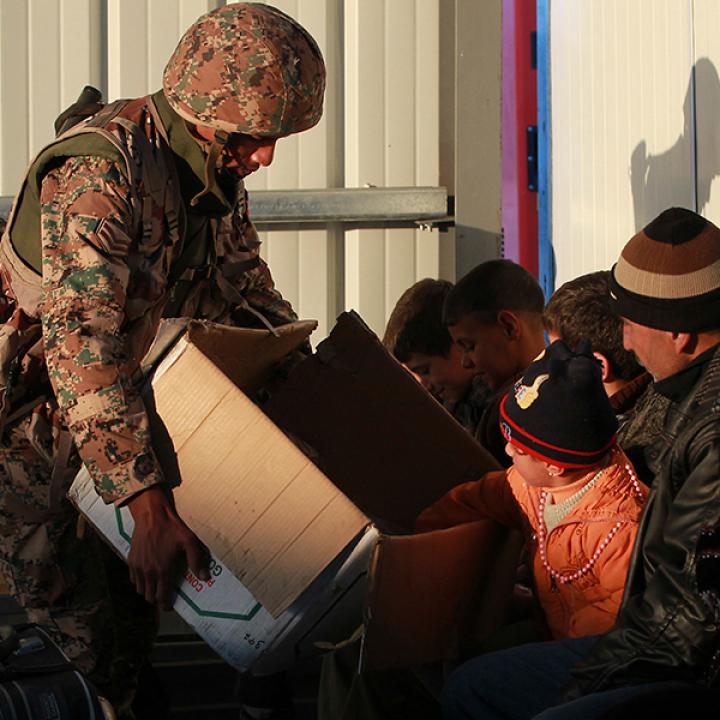
- Policy Analysis
- Policy Alert
Jordan Reaches the Refugee Saturation Point

In addition to suffering from inadequate international humanitarian assistance, the kingdom's massive Syrian refugee population is threatening the domestic stability of a key strategic partner.
Earlier this week, during an interview with the BBC, Jordan's King Abdullah discussed the increasing pressure that Syrian refugees are placing on his country. Appealing for financial aid from the international community, he warned said that "sooner or later, the dam is going to burst."
The king's comments were not hyperbole -- Jordan urgently needs additional refugee-related assistance. According to the UN High Commissioner for Refugees, nearly 750,000 registered Syrians reside in the kingdom, the second highest per capita refugee rate in the world after Lebanon. Last year, the UN reported that it had received less than half of its budget requirements from international donors for Syrian refugees in the region, resulting in significant reductions in food and other assistance.
Further compounding the problem, registered refugees constitute only a portion of the Syrians currently in Jordan. The kingdom's recently released census figures indicate that 1,265,514 Syrians have fled there -- in total, they comprise a staggering 13.28 percent of the population. That would be the equivalent of 10.8 million refugees living in Germany, or 66.8 million living in the entire European Union. Moreover, the UN has stated that 86 percent of Jordan's Syrian refugees subsist below the poverty line.
During his BBC interview, the king singled out Syrians as a particular financial burden. While Syrians constitute the largest segment of foreign nationals in Jordan, however, the census shows that some 3 million of its 9.5 million residents are not Jordanian. These include nearly 636,000 Egyptians, 131,000 Iraqis, 31,000 Yemenis, 23,000 Libyans, and 634,000 non-naturalized Palestinians. No doubt, this enormous expatriate population is further stressing Jordan's absorptive capacity and budget.
This week, a conference was held in London focused on raising $9 billion to support educational and employment opportunities for Syrian refugees in Turkey, Lebanon, and Jordan. In addition to meeting acute humanitarian requirements, such initiatives are aimed at alleviating the risk of radicalization among refugee communities.
Counterradicalization efforts are important, yet if precedent holds, this appeal will generate nowhere near $9 billion. Indeed, the EU has pledged just over $3 billion at the conference. Meanwhile, Jordan has closed the border in recent months, and tens of thousands of Syrians are encamped along the frontier awaiting entry. A moderate and pro-Western Jordan is a critical asset in the war against the Islamic State. Yet the kingdom's stability should not be taken for granted. The dislocation caused by the Syrians is considerable.
Last year, in addition to increasing its baseline economic and military assistance programs to Jordan from $660 million to $1 billion per year, the United States contributed $180 million to refugee programs in the kingdom. While this amount comprised nearly a quarter of Jordan's total international refugee assistance, Washington should do even more in the coming years given the state's strategic importance.
For their part, individual European states and the EU provided nearly $200 million to support Jordan's Syrian refugees last year. Although this is a relatively generous amount by their standards, Europeans should have a particularly keen self-interest in providing higher levels of support. According to a recent survey by the Norwegian Refugee Council, half of the Syrian refugees in Jordan intend to leave the kingdom "because they see no future" there. Indeed, if Western states do not contribute more to improving their prospects, many of them may eventually try to make their way to Europe and beyond.
David Schenker is the Aufzien Fellow and director of the Program on Arab Politics at The Washington Institute.


